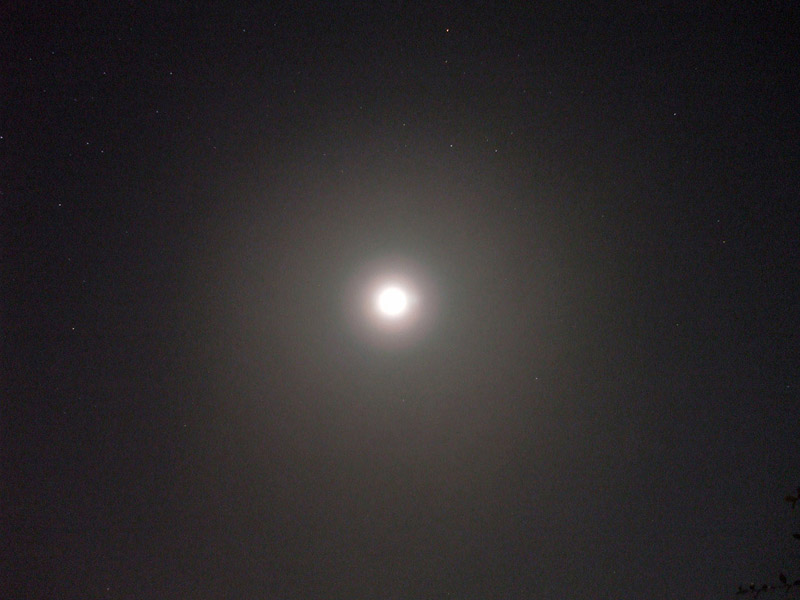Difference between revisions of "June 15, 2011"
| Line 1: | Line 1: | ||
__NOTOC__ | __NOTOC__ | ||
=Comet Puyehue= | =Comet Puyehue= | ||
| − | |||
<!-- ws:start:WikiTextHeadingRule:0:<h1> --> | <!-- ws:start:WikiTextHeadingRule:0:<h1> --> | ||
<!-- ws:start:WikiTextLocalImageRule:6:<img src="/file/view/LPOD-Jun15-11.jpg/236710084/LPOD-Jun15-11.jpg" alt="" title="" style="width: 700px;" /> -->[[File:LPOD-Jun15-11.jpg|LPOD-Jun15-11.jpg]]<!-- ws:end:WikiTextLocalImageRule:6 --><br /> | <!-- ws:start:WikiTextLocalImageRule:6:<img src="/file/view/LPOD-Jun15-11.jpg/236710084/LPOD-Jun15-11.jpg" alt="" title="" style="width: 700px;" /> -->[[File:LPOD-Jun15-11.jpg|LPOD-Jun15-11.jpg]]<!-- ws:end:WikiTextLocalImageRule:6 --><br /> | ||
| − | <em>image by [mailto:mauricejscollins@hotmail.com Maurice Collins]</em><br /> | + | <em>image by [mailto:mauricejscollins@hotmail.com" rel="nofollow Maurice Collins]</em><br /> |
<br /> | <br /> | ||
| − | A bright new comet, with a huge halo, was imaged quite near the Earth. In fact, it was at the Moon's orbit. Actually it was the Moon itself, swaddled in a globe-circling haze of volcanic ash and gas. From Maurice's backyard in New Zealand the sky was noticeably hazy, with each bright object surrounded by a halo like a bright nimbus around a fresh impact crater. The volcanao was more than a half a world away - [http://www.dailymail.co.uk/news/article-563975/Amazing-pictures-The-lightning-storm-engulfed-erupting-volcano.html Puyehue] in Chile. The ash cloud had [http://eer.cmc.ec.gc.ca/people/Alain/eer/emergencies/fd92kH73sSJDiO76bxpJK/Cordon_Caulle/exp_02/FL200-FL350/anim.html snaked] across the the South Atlantic and Indian oceans like Chinese dragon dancers, causing air traffic delays and brilliant sunsets. Maurice reports that it has not affected imaging of the Moon, but I would imagine the extra sky brightness makes imaging deep sky obsjects difficult. A so-far smaller eruption from a previously dormant volcano in the horn of Africa has sent a [http://www.irishweatheronline.com/news/earthquakesvolcanos/ash-cloud-spreads-as-african-volcano-eruption-now-mainly-so2/20074.html plume] northward over Ethiopia and Sudan, heading towards Israel. And the USA, which is falling behind the rest of the world in many ways, now lags in volcanic eruptions. These volcanic plumes may make the long eclipse of the Moon today darker than normal.<br /> | + | A bright new comet, with a huge halo, was imaged quite near the Earth. In fact, it was at the Moon's orbit. Actually it was the Moon itself, swaddled in a globe-circling haze of volcanic ash and gas. From Maurice's backyard in New Zealand the sky was noticeably hazy, with each bright object surrounded by a halo like a bright nimbus around a fresh impact crater. The volcanao was more than a half a world away - [http://www.dailymail.co.uk/news/article-563975/Amazing-pictures-The-lightning-storm-engulfed-erupting-volcano.html" rel="nofollow Puyehue] in Chile. The ash cloud had [http://eer.cmc.ec.gc.ca/people/Alain/eer/emergencies/fd92kH73sSJDiO76bxpJK/Cordon_Caulle/exp_02/FL200-FL350/anim.html" rel="nofollow snaked] across the the South Atlantic and Indian oceans like Chinese dragon dancers, causing air traffic delays and brilliant sunsets. Maurice reports that it has not affected imaging of the Moon, but I would imagine the extra sky brightness makes imaging deep sky obsjects difficult. A so-far smaller eruption from a previously dormant volcano in the horn of Africa has sent a [http://www.irishweatheronline.com/news/earthquakesvolcanos/ash-cloud-spreads-as-african-volcano-eruption-now-mainly-so2/20074.html" rel="nofollow plume] northward over Ethiopia and Sudan, heading towards Israel. And the USA, which is falling behind the rest of the world in many ways, now lags in volcanic eruptions. These volcanic plumes may make the long eclipse of the Moon today darker than normal.<br /> |
<br /> | <br /> | ||
| − | <em>[mailto:tychocrater@yahoo.com Chuck Wood]</em><br /> | + | <em>[mailto:tychocrater@yahoo.com" rel="nofollow Chuck Wood]</em><br /> |
<br /> | <br /> | ||
<strong>Technical Details</strong><br /> | <strong>Technical Details</strong><br /> | ||
Revision as of 22:17, 4 January 2015
Comet Puyehue

image by " rel="nofollow Maurice Collins
A bright new comet, with a huge halo, was imaged quite near the Earth. In fact, it was at the Moon's orbit. Actually it was the Moon itself, swaddled in a globe-circling haze of volcanic ash and gas. From Maurice's backyard in New Zealand the sky was noticeably hazy, with each bright object surrounded by a halo like a bright nimbus around a fresh impact crater. The volcanao was more than a half a world away - " rel="nofollow Puyehue in Chile. The ash cloud had " rel="nofollow snaked across the the South Atlantic and Indian oceans like Chinese dragon dancers, causing air traffic delays and brilliant sunsets. Maurice reports that it has not affected imaging of the Moon, but I would imagine the extra sky brightness makes imaging deep sky obsjects difficult. A so-far smaller eruption from a previously dormant volcano in the horn of Africa has sent a " rel="nofollow plume northward over Ethiopia and Sudan, heading towards Israel. And the USA, which is falling behind the rest of the world in many ways, now lags in volcanic eruptions. These volcanic plumes may make the long eclipse of the Moon today darker than normal.
" rel="nofollow Chuck Wood
Technical Details
June 13,2011, 01:30 am.



